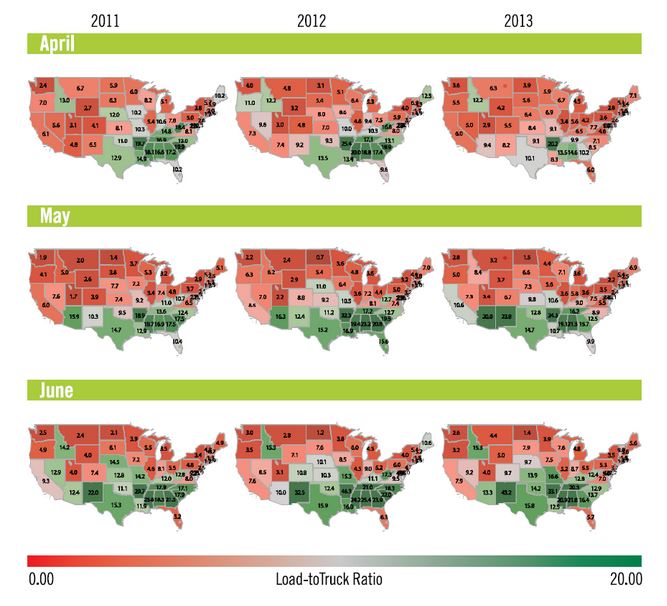Truck dispatchers process and transmit information and instruction to facilitate the activities of commercial truck drivers operating class 1 trucks. They help transport goods over local, provincial, national, and international freight lanes. They may work for a wide array of business types but most commonly are employed at trucking firms and distribution companies. Job titles for the dispatcher may include fleet manager, logistics planner, or transportation operations manager. This article will discuss the truck dispatcher job description in detail.
Servicing Customers
Dispatchers are often responsible for negotiating rates and terms of service with clients. Understanding target revenue per mile or revenue per kilometre is a key part of the profession. Furthermore, dispatchers must be familiar with the client’s geographic location and physical set-up. For example, ABC Shipping & Receiving only has cross-dock facilitates at two major city terminals for which you must understand the implications of loading procedures. Keeping detailed records of all operations is important to be able to relay this information to the customer. For this reason, it’s common for dispatcher to work with truck dispatching software to enter orders, dispatches, and other important information such as pickup/delivery times to keep track of this information in a neatly organized system.
Moreover, drivers may be tired when delivery appointments come around which may cause their attitudes to be abrasive towards the customer. It is essential for the dispatcher to be able to work with the driver to ensure courteous delivery of freight and ensure company personnel are providing good customer service.
Each client has their own set of internal operations rules. Being able to adapt to these expectations of the customers enhances business relations.
Ensuring freight is delivered on time may become a complex process if unforeseen delays occur. For example, in the event of a driver is out of hours of service, the dispatcher may have to organize a trailer interchange with a driver whom has a fresh logbook so that the most urgent freight is delivered first. As a result, dispatchers must be proficient in high school mathematics to be able to develop analytical thinking.
Planning and Scheduling
The second part of this article will discuss the job duties of a truck dispatcher as they are concerned with planning and scheduling freight transport. Firstly, prioritizing is an essential skill because loads will have specific delivery windows and the dispatcher must address the most important loads first. Dispatchers will work with freight brokers and shippers directly to balance demand and capacity. Demand is the need for freight transport and capacity is the drivers and tractor-trailers needed to haul the freight. Foreseeing problems is another important trait of the truck dispatcher. For example, if a highway closure is going to take effect and notification has been given beforehand, the dispatcher must use this information to either reschedule the load or plan an alternate route. Highway closures are posted by provincial and state traffic websites and it may be beneficial to the dispatcher to sign up for real-time alerts. Furthermore, scheduling drivers means you must have a clear understanding of the hours of service regulations. Moreover, planning requires the minimization of empty miles. Dispatchers should always look to minimize empty miles because loaded miles commonly generate a higher margin.
Planning and scheduling part of the dispatcher’s profession will usually involve a routing or mapping software. GPS monitoring is also common among today’s fleets. Therefore, computer use is required.
Managing driver resources
Dispatchers work closely with truck drivers to meet important transport deadlines. Drivers rely on dispatchers for being provided the required documentation and instructions. Dispatchers often must be available for contact 24 hours a day in case a driver experiences a breakdown or is involved in an accident.
The hours of service regulations are an important law that dispatcher must carry full expertise in. The dispatcher’s role is prominent in training new drivers how to correctly fill out a logbook and ensuring they understand the rules to follow. Drivers may also need to be trained for other certifications such as HAZMAT and WHIMIS. Local reefer van loads where perishable freight needs to be unloaded by the driver requires a Food-safe certification.
Interpersonal skills are important to possess for a dispatcher because they will need to demonstrate empathy and understanding of driver’ needs.
Conclusion:
This information covers three essential parts of the truck dispatcher job description; servicing customers, planning and scheduling freight transport, and managing driver resources. Further information about the truck dispatching profession can be found by browsing this website.
[contextly_sidebar id=”moRg5OlF76Qdm9aRMIE4qJZ7QpqhCrKz”]




I would like to work as a trucking dispatcher, neet more details